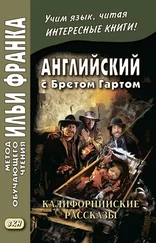Mark Twain - The Curious Republic of Gondour, and Other Whimsical Sketches
Здесь есть возможность читать онлайн «Mark Twain - The Curious Republic of Gondour, and Other Whimsical Sketches» весь текст электронной книги совершенно бесплатно (целиком полную версию без сокращений). В некоторых случаях можно слушать аудио, скачать через торрент в формате fb2 и присутствует краткое содержание. Год выпуска: 2004, Жанр: Классическая проза, Публицистика, на английском языке. Описание произведения, (предисловие) а так же отзывы посетителей доступны на портале библиотеки ЛибКат.
- Название:The Curious Republic of Gondour, and Other Whimsical Sketches
- Автор:
- Жанр:
- Год:2004
- ISBN:нет данных
- Рейтинг книги:3 / 5. Голосов: 1
-
Избранное:Добавить в избранное
- Отзывы:
-
Ваша оценка:
- 60
- 1
- 2
- 3
- 4
- 5
The Curious Republic of Gondour, and Other Whimsical Sketches: краткое содержание, описание и аннотация
Предлагаем к чтению аннотацию, описание, краткое содержание или предисловие (зависит от того, что написал сам автор книги «The Curious Republic of Gondour, and Other Whimsical Sketches»). Если вы не нашли необходимую информацию о книге — напишите в комментариях, мы постараемся отыскать её.
The Curious Republic of Gondour, and Other Whimsical Sketches — читать онлайн бесплатно полную книгу (весь текст) целиком
Ниже представлен текст книги, разбитый по страницам. Система сохранения места последней прочитанной страницы, позволяет с удобством читать онлайн бесплатно книгу «The Curious Republic of Gondour, and Other Whimsical Sketches», без необходимости каждый раз заново искать на чём Вы остановились. Поставьте закладку, и сможете в любой момент перейти на страницу, на которой закончили чтение.
Интервал:
Закладка:
Is there a choir in Mr. T.'s church? And does it ever occur that they have no better manners than to sing that hymn which is so suggestive of labourers and mechanics:
"Son of the Carpenter! receive
This humble work of mine?"
Now, can it be possible that in a handful of centuries the Christian character has fallen away from an imposing heroism that scorned even the stake, the cross, and the axe, to a poor little effeminacy that withers and wilts under an unsavoury smell? We are not prepared to believe so, the reverend Doctor and his friend to the contrary notwithstanding.
A COUPLE OF SAD EXPERIENCES
When I published a squib recently in which I said I was going to edit an Agricultural Department in this magazine, I certainly did not desire to deceive anybody. I had not the remotest desire to play upon any one's confidence with a practical joke, for he is a pitiful creature indeed who will degrade the dignity of his humanity to the contriving of the witless inventions that go by that name. I purposely wrote the thing as absurdly and as extravagantly as it could be written, in order to be sure and not mislead hurried or heedless readers: for I spoke of launching a triumphal barge upon a desert, and planting a tree of prosperity in a mine—a tree whose fragrance should slake the thirst of the naked, and whose branches should spread abroad till they washed the chorea of, etc., etc. I thought that manifest lunacy like that would protect the reader. But to make assurance absolute, and show that I did not and could not seriously mean to attempt an Agricultural Department, I stated distinctly in my postscript that I did not know anything about Agriculture. But alas! right there is where I made my worst mistake—for that remark seems to have recommended my proposed Agriculture more than anything else. It lets a little light in on me, and I fancy I perceive that the farmers feel a little bored, sometimes, by the oracular profundity of agricultural editors who "know it all." In fact, one of my correspondents suggests this (for that unhappy squib has deluged me with letters about potatoes, and cabbages, and hominy, and vermicelli, and maccaroni, and all the other fruits, cereals, and vegetables that ever grew on earth; and if I get done answering questions about the best way of raising these things before I go raving crazy, I shall be thankful, and shall never write obscurely for fun any more).
Shall I tell the real reason why I have unintentionally succeeded in fooling so many people? It is because some of them only read a little of the squib I wrote and jumped to the conclusion that it was serious, and the rest did not read it at all, but heard of my agricultural venture at second-hand. Those cases I could not guard against, of course. To write a burlesque so wild that its pretended facts will not be accepted in perfect good faith by somebody, is very nearly an impossible thing to do. It is because, in some instances, the reader is a person who never tries to deceive anybody himself, and therefore is not expecting any one to wantonly practise a deception upon him; and in this case the only person dishonoured is the man who wrote the burlesque. In other instances the "nub" or moral of the burlesque—if its object be to enforce a truth—escapes notice in the superior glare of something in the body of the burlesque itself. And very often this "moral" is tagged on at the bottom, and the reader, not knowing that it is the key of the whole thing and the only important paragraph in the article, tranquilly turns up his nose at it and leaves it unread. One can deliver a satire with telling force through the insidious medium of a travesty, if he is careful not to overwhelm the satire with the extraneous interest of the travesty, and so bury it from the reader's sight and leave him a joked and defrauded victim, when the honest intent was to add to either his knowledge or his wisdom. I have had a deal of experience in burlesques and their unfortunate aptness to deceive the public, and this is why I tried hard to make that agricultural one so broad and so perfectly palpable that even a one-eyed potato could see it; and yet, as I speak the solemn truth, it fooled one of the ablest agricultural editors in America!
DAN MURPHY
One of the saddest things that ever came under my notice (said the banker's clerk) was there in Corning, during the war. Dan Murphy enlisted as a private, and fought very bravely. The boys all liked him, and when a wound by and by weakened him down till carrying a musket was too heavy work for him, they clubbed together and fixed him up as a sutler. He made money then, and sent it always to his wife to bank for him. She was a washer and ironer, and knew enough by hard experience to keep money when she got it. She didn't waste a penny. On the contrary, she began to get miserly as her bank account grew. She grieved to part with a cent, poor creature, for twice in her hard-working life she had known what it was to be hungry, cold, friendless, sick, and without a dollar in the world, and she had a haunting dread of suffering so again. Well, at last Dan died; and the boys, in testimony of their esteem and respect for him, telegraphed to Mrs. Murphy to know if she would like to have him embalmed and sent home, when you know the usual custom was to dump a poor devil like him into a shallow hole, and then inform his friends what had become of him. Mrs. Murphy jumped to the conclusion that it would only cost two or three dollars to embalm her dead husband, and so she telegraphed "Yes." It was at the "wake" that the bill for embalming arrived and was presented to the widow. She uttered a wild, sad wail, that pierced every heart, and said: "Sivinty-foive dollars for stoofhn' Dan, blister their sowls! Did thim divils suppose I was goin' to stairt a Museim, that I'd be dalin' in such expinsive curiassities!"
The banker's clerk said there was not a dry eye in the house.
THE "TOURNAMENT" IN A. D. 1870
Lately there appeared an item to this effect, and the same went the customary universal round of the press:
A telegraph station has just been established upon the traditional
site of the Garden of Eden.
As a companion to that, nothing fits so aptly and so perfectly as this:
Brooklyn has revived the knightly tournament of the Middle Ages.
It is hard to tell which is the most startling, the idea of that highest achievement of human genius and intelligence, the telegraph, prating away about the practical concerns of the world's daily life in the heart and home of ancient indolence, ignorance, and savagery, or the idea of that happiest expression of the brag, vanity, and mock-heroics of our ancestors, the "tournament," coming out of its grave to flaunt its tinsel trumpery and perform its "chivalrous" absurdities in the high noon of the nineteenth century, and under the patronage of a great, broad-awake city and an advanced civilisation.
A "tournament" in Lynchburg is a thing easily within the comprehension of the average mind; but no commonly gifted person can conceive of such a spectacle in Brooklyn without straining his powers. Brooklyn is part and parcel of the city of New York, and there is hardly romance enough in the entire metropolis to re-supply a Virginia "knight" with "chivalry," in case he happened to run out of it. Let the reader calmly and dispassionately picture to himself "lists"—in Brooklyn; heralds, pursuivants, pages, garter king-at-arms—in Brooklyn; the marshalling of the fantastic hosts of "chivalry" in slashed doublets, velvet trunks, ruffles, and plumes—in Brooklyn; mounted on omnibus and livery-stable patriarchs, promoted, and referred to in cold blood as "steeds," "destriers," and "chargers," and divested of their friendly, humble names—these meek old "Jims" and "Bobs" and "Charleys," and renamed "Mohammed," "Bucephalus," and "Saladin"—in Brooklyn; mounted thus, and armed with swords and shields and wooden lances, and cased in paste board hauberks, morions, greaves, and gauntlets, and addressed as "Sir" Smith, and "Sir" Jones, and bearing such titled grandeurs as "The Disinherited Knight," the "Knight of Shenandoah," the "Knight of the Blue Ridge," the "Knight of Maryland," and the "Knight of the Secret Sorrow"—in Brooklyn; and at the toot of the horn charging fiercely upon a helpless ring hung on a post, and prodding at it intrepidly with their wooden sticks, and by and by skewering it and cavorting back to the judges' stand covered with glory—this in Brooklyn; and each noble success like this duly and promptly announced by an applauding toot from the herald's horn, and "the band playing three bars of an old circus tune"—all in Brooklyn, in broad daylight. And let the reader remember, and also add to his picture, as follows, to wit: when the show was all over, the party who had shed the most blood and overturned and hacked to pieces the most knights, or at least had prodded the most muffin-rings, was accorded the ancient privilege of naming and crowning the Queen of Love and Beauty—which naming had in reality been done for him by the "cut-and-dried" process, and long in advance, by a committee of ladies, but the crowning he did in person, though suffering from loss of blood, and then was taken to the county hospital on a shutter to have his wounds dressed—these curious things all occurring in Brooklyn, and no longer ago than one or two yesterdays. It seems impossible, and yet it is true.
Читать дальшеИнтервал:
Закладка:
Похожие книги на «The Curious Republic of Gondour, and Other Whimsical Sketches»
Представляем Вашему вниманию похожие книги на «The Curious Republic of Gondour, and Other Whimsical Sketches» списком для выбора. Мы отобрали схожую по названию и смыслу литературу в надежде предоставить читателям больше вариантов отыскать новые, интересные, ещё непрочитанные произведения.
Обсуждение, отзывы о книге «The Curious Republic of Gondour, and Other Whimsical Sketches» и просто собственные мнения читателей. Оставьте ваши комментарии, напишите, что Вы думаете о произведении, его смысле или главных героях. Укажите что конкретно понравилось, а что нет, и почему Вы так считаете.











